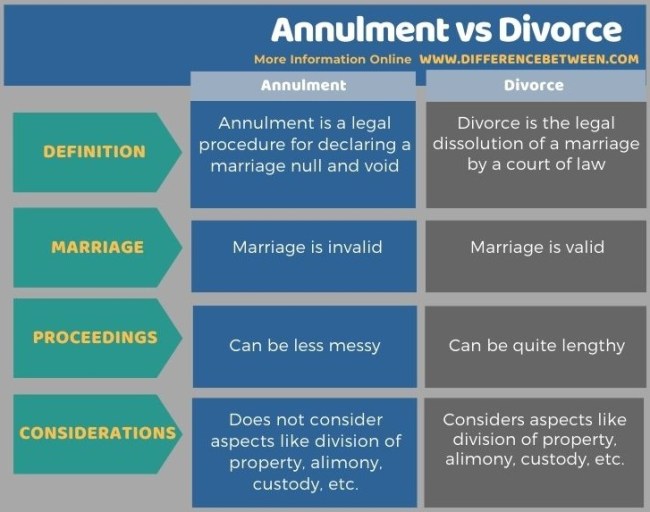
End stage MS is characterized by a range of symptoms. There are two main symptoms of end-stage MS: an increase in hospital emergency room admissions and an increased likelihood of infection. Sepsis is a serious condition that can result in death. It is caused by an immune system response to foreign substances. Sepsis can also be called blood poisoning, or septicaemia. End stage MS is also indicated by physical decline and weight loss. Patients may need 24-hour nursing care.
End-stage ms symptoms
End-stage MS may present suddenly or over a long time. Sometimes, a person can be stable for many years before they begin to decline. They may even go into remission. The disease itself can sometimes cause death. A condition known as pneumonia can result from deterioration in the respiratory system. This can be treated with sedatives or pain medication. Medication can also reduce respiratory secretions. Certain symptoms may restrict the medications and methods of administration.
MS may progress faster in this second type. PPMS can have more severe symptoms. Patients may need to be treated with more aggressive therapies or experimental therapies. PPMS is currently incurable. However, there are experimental treatments that can improve symptoms and prevent further damage. Moreover, the relapsing form of MS causes symptoms that may last for years.

Common problems
A person with MS may lose the ability to do daily tasks or take care of themselves in the later stages. This could impact their ability to work, socialize and maintain relationships. They may have difficulty breathing, or increased respiratory secretions. They may have trouble swallowing food, or they might forget how. This could increase emergency room visits, and require 24-hour care.
Although some MS symptoms may make it possible for patients to live on their own, others may experience severe complications that can limit their ability to enjoy life. End-stage MS is a condition that requires people to depend on them for daily tasks. This form of MS can also cause severe damage to your central nervous system. Therefore, it is imperative that you seek medical care as soon as you feel the need. End-stage MS patients may need significant life changes.
Advance care planning
An advance medical directive (ACD), which is a legal document that outlines a person's wishes regarding their health, can also help them make decisions about their future care. An advance directive is a legal document that identifies who will make the decisions on behalf of the individual in the event they become incapacitated. A person's advance care directive can help minimize conflict between family members or doctors. By creating specific instructions, an individual can make sure that they will get the care they need, and the care they want to receive.
ACP can be initiated by the time the diagnosis is received. A specialist neurologist will review the wishes of the patient and refer them to a multidisciplinary support staff. The team of specialists will be assembled quickly and the patient will be scheduled regularly to discuss his or her status. This policy is part of the MND specialists’ guidance and seems to be widely accepted by patients.

Hospice care
Multiple sclerosis patients may be eligible to receive hospice care. Although the severity of symptoms and risk factors for MS vary, a hospice evaluation can help a patient maintain the highest quality of life. The hospice team provides assistance with MS medication, medical supplies and equipment, as well as positioning tools. Because hospice care is focused on maintaining the highest quality life possible, patients with MS in its final stages may benefit. A hospice evaluation may not be necessary if MS is life-threatening.
A person suffering from multiple sclerosis may qualify for hospice care, even if their life expectancy is less than six months. Hospice care is focused on pain and symptom management. It also offers a wide range of support services to patients' families. Hospice care is available in any location, but some hospices offer 24-hour hospice care. Hospice is designed to provide comfort and quality of care for patients, while honoring their wishes.
FAQ
How long does it take for the pieces to come apart?
Sometimes people wonder how long it takes to break up and whether it's worth staying together. No matter how hard we try, we won't always be successful in breaking up.
You might need to take longer if you try to end things by talking to someone who isn’t interested in listening.
Even if everything has been tried, it's possible to fail. This is because some couples are just not meant to be together.
If you're thinking about ending things with someone, then you should first talk to them. Explain to them that you've made a decision and ask them if they agree with it.
If they say yes, you should proceed with your plan. If they don't agree with you, you might reconsider your options.
How long should I wait before I begin dating again after a split?
There's no right or wrong time to wait before you start dating another person. However, there are some guidelines that can help you make the right decisions.
Consider whether you are emotionally ready and able to get back in a romantic relationship.
Are you still bitter about the breakup? Are you still unable to accept the hurtful feelings?
If you're still dealing with these issues, then waiting until you're better able to handle them could be a good idea.
But if you have moved past your initial grief, and are ready to move forward, you don’t need to wait.
You should also consider how well you got along. Have you ever spent time together other than in the bedroom?
Did you share common interests and hobbies? Did you have a lot fun and laughter together?
You will likely find another partner if you had a great time together.
If you don't click with someone, you may not be able connect with them. You might need to allow yourself more time for healing.
Finally, think about your current situation. Are you working or attending school?
Are you a parent? How old are they? What kind schedule would you follow?
These questions can help you figure out if you are available to spend enough time with a new partner.
Avoiding bad decisions by asking yourself these types of questions can help you to avoid making them. Avoid making rash decisions or rushing to make any purchase.
My boyfriend wants to have sexual sex, but I refuse. What should I do?
Sex is an intimate experience. It requires trust between partners. If one partner feels unsafe or uncomfortable, it is unlikely that they will enjoy the act.
If you feel anxious or scared it is understandable why you would prefer to avoid sex.
You shouldn't try to force your boyfriend into something. Instead, talk to your boyfriend and explain why you are so hesitant.
Ask him if he feels you are ready for sex. Ask him what would make you feel comfortable.
And most importantly, listen to his answer. Don't judge him based on your own feelings.
If he says that he doesn't want to pressure you, then you can relax. But if he says that he does want to have sex, then you'll need to figure out a way to overcome your fears.
You might simply want to practice safer sex techniques. Or it might involve talking to your doctor about birth control methods.
No matter what you do, you deserve happiness. You owe your boyfriend a solution if you worry about hurting his feelings.
How to handle an abusive relationship?
You need to take action to make sure you don't end up back in this situation again.
Learn how to handle rejection and disappointment.
You also need to know what you want for yourself now.
You can change anything if it is something you do not want.
You must set goals and begin working towards them.
Stop blaming others, and instead take responsibility for what you do.
You must find ways to deal with anxiety and stress.
Accept the fact that not all people will get you.
Also, you must learn to forgive.
Statistics
- Meanwhile, a 2010 study of twenty-three thousand married couples found that the similarity of spouses accounted for less than 0.5 percent of spousal satisfaction. (time.com)
- After analyzing the data and controlling for the influence of other personality traits and demographic factors, she found that gritty men were 17 percent more likely to stay married. (time.com)
- The story they tell predicts with 94% accuracy whether they will divorce in 3 years. (time.com)
- If you expect to get what you want 100% of the time in a relationship, you are setting yourself up for disappointment. (helpguide.org)
External Links
How To
How to make a new partner successful
Trust is a key component in any healthy relationship. You should expect your relationship will be a regular part of your life. You should be open to the possibility of change and accepting them as they are. Hang out with the person to determine if you are compatible. If you see something good in someone, go for it!
When starting a relationship, there are many things you should consider. Are you ready to marry? Do you want to live with each other? Do you want to be in a long-term relationship? Do you want kids? If so, how old are you? How much money can you afford to have children? Is it okay if your parents know about this person? Does she/he like children? Will you move in with each other?
These questions will help you decide what kind of relationship you want. No matter the type of relationship you choose there will always be ups and also downs. Don't rush into things. Do your research before jumping into a committed relationship.
Try to be realistic about your expectations when you are considering dating someone. Expect nothing too much from your first date. You might be surprised by what he/she has to offer. Even though you are going through many changes, enjoy your relationship. Have fun. Make memories.
I would recommend that you follow my advice, and not rush into committing. Be sure to consider everything before making such big decisions.